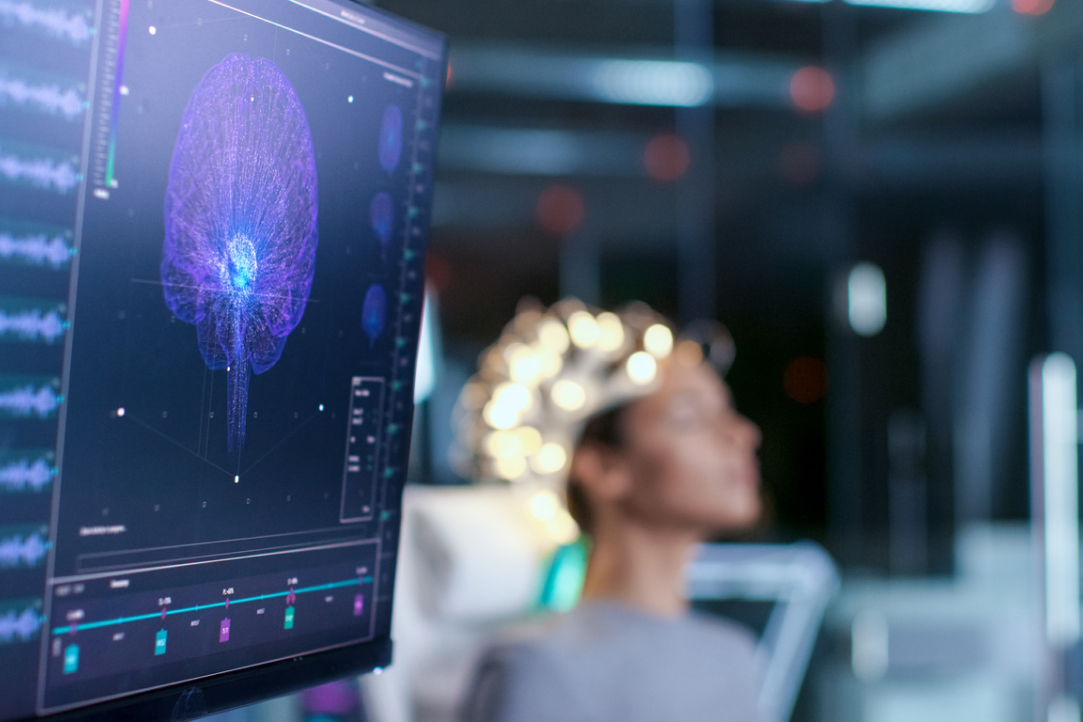HSE University Center for Language and Brain Becomes World Leader in Just 10 Years

How can a small Russian research group become a world-famous scientific centre in less than a decade? A special edition of the Frontiers in Psychology journal devoted to increasing public awareness of neuroscience features an article about the HSE University Center for Language and Brain, including the successes and challenges of its early years.
Russia’s linguistic and neuropsychology schools have trained numerous famous figures in their respective fields. However, in the 21st century, only a small number of research groups in Russia have looked into areas that combine the two: psycholinguistics and neurolinguistics. Less than a decade ago, a small group of researchers led by Olga Dragoy began working in these fields. In the short time since, the group has grown into the HSE University Center for Language and Brain—a major scientific institution.
In the Frontiers in Psychology article, the Center’s staff share their experiences and turn a critical eye on their successes and failures. One notable example was the project to create the Russian Aphasia Test. The researchers now admit that their initial idea was too ambitious, and that young research groups are better off focusing on smaller-scale research that requires fewer resources. At the same time, the creation of the test is one example of the successful combination of research and clinical practice.
In addition to their research, the Centre’s staff also discuss their educational activities—such as assigning annual term papers to students. While a standard practice in Russia, it is less common in other countries. Term papers give junior students an opportunity to conduct research and gain experience before enrolling in doctoral programmes—experience that students in many other countries lack

Olga Dragoy, Director of the Center for Language and Brain
‘Flexibility in your research interests at the start of your academic career can pay off. If an opportunity presents itself to work on a topic that you weren’t originally interested in, give it a go anyway—it may end up having long-term potential and becoming something you love.'
The article shares experience and recommendations to help young research groups in Russia and abroad, inspire them, and offer guidance in decision-making and setting priorities when creating similar research centres.
According to Svetlana Malyutina, Senior Research Fellow of the Center for Language and Brain, ‘One of the best investments a young research group can make is to recruit and communicate with students. Sure, it takes up precious time and effort, but it pays off in the end—talented students are the driving force behind countless projects.’
See also:
Scientists Uncover Why Consumers Are Reluctant to Pay for Sugar-Free Products
Researchers at the HSE Institute for Cognitive Neuroscience have investigated how 'sugar-free' labelling affects consumers’ willingness to pay for such products. It was found that the label has little impact on the products’ appeal due to a trade-off between sweetness and healthiness: on the one hand, the label can deter consumers by implying an inferior taste, while on the other, it signals potential health benefits. The study findings have been published in Frontiers in Nutrition.
Internal Clock: How Heart Rate and Emotions Shape Our Perception of Time
Our perception of time depends on heart rate—this is the conclusion reached by neuroscientists at HSE University. In their experiment, volunteers watched short videos designed to evoke specific emotions and estimated each video's duration, while researchers recorded their heart activity using ECG. The study found that the slower a participant's heart rate, the shorter they perceived the video to be—especially when watching unpleasant content. The study has been published in Frontiers in Psychology.
Scientists Develop New Method to Detect Motor Disorders Using 3D Objects
Researchers at HSE University have developed a new methodological approach to studying motor planning and execution. By using 3D-printed objects and an infrared tracking system, they demonstrated that the brain initiates the planning process even before movement begins. This approach may eventually aid in the assessment and treatment of patients with neurodegenerative diseases such as Parkinson’s. The paper has been published in Frontiers in Human Neuroscience.
HSE Scientists Test New Method to Investigate Mechanisms of New Word Acquisition
Researchers at the HSE Centre for Language and Brain were among the first to use transcranial alternating current stimulation to investigate whether it can influence the acquisition of new words. Although the authors of the experiment have not yet found a link between brain stimulation and word acquisition, they believe that adjusting the stimulation parameters may yield different results in the future. The study has been published in Language, Cognition and Neuroscience.
When Thoughts Become Movement: How Brain–Computer Interfaces Are Transforming Medicine and Daily Life
At the dawn of the 21st century, humans are increasingly becoming not just observers, but active participants in the technological revolution. Among the breakthroughs with the potential to change the lives of millions, brain–computer interfaces (BCIs)—systems that connect the brain to external devices—hold a special place. These technologies were the focal point of the spring International School ‘A New Generation of Neurointerfaces,’ which took place at HSE University.
How the Brain Responds to Prices: Scientists Discover Neural Marker for Price Perception
Russian scientists have discovered how the brain makes purchasing decisions. Using electroencephalography (EEG) and magnetoencephalography (MEG), researchers found that the brain responds almost instantly when a product's price deviates from expectations. This response engages brain regions involved in evaluating rewards and learning from past decisions. Thus, perceiving a product's value is not merely a conscious choice but also a function of automatic cognitive mechanisms. The results have been published in Frontiers in Human Neuroscience.
Electrical Brain Stimulation Helps Memorise New Words
A team of researchers at HSE University, in collaboration with scientists from Russian and foreign universities, has investigated the impact of electrical brain stimulation on learning new words. The experiment shows that direct current stimulation of language centres—Broca's and Wernicke's areas—can improve and speed up the memorisation of new words. The findings have been published in Neurobiology of Learning and Memory.
HSE Researchers Discover Simple and Reliable Way to Understand How People Perceive Taste
A team of scientists from the HSE Centre for Cognition & Decision Making has studied how food flavours affect brain activity, facial muscles, and emotions. Using near-infrared spectroscopy (fNIRS), they demonstrated that pleasant food activates brain areas associated with positive emotions, while neutral food stimulates regions linked to negative emotions and avoidance. This approach offers a simpler way to predict the market success of products and study eating disorders. The study was published in the journal Food Quality and Preference.
HSE Neurolinguists Create Russian Adaptation of Classic Verbal Memory Test
Researchers at the HSE Centre for Language and Brain and Psychiatric Hospital No. 1 Named after N.A. Alexeev have developed a Russian-language adaptation of the Rey Auditory Verbal Learning Test. This classic neuropsychological test evaluates various aspects of auditory verbal memory in adults and is widely used in both clinical diagnostics and research. The study findings have been published in The Clinical Neuropsychologist.
Researchers at HSE Centre for Language and Brain Reveal Key Factors Determining Language Recovery in Patients After Brain Tumour Resection
Alina Minnigulova and Maria Khudyakova at the HSE Centre for Language and Brain have presented the latest research findings on the linguistic and neural mechanisms of language impairments and their progression in patients following neurosurgery. The scientists shared insights gained from over five years of research on the dynamics of language impairment and recovery.


